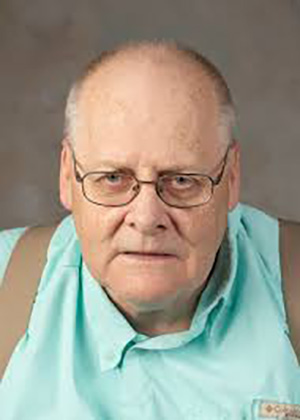By GREG MARKLEY
If you are an Auburn University or Southern Union student enrolled this summer, the advice below is of immediate help. I hope so. If you are taking a break from books, keep this information handy; in mid-August you may be back in a classroom or studying online. When I taught part-time at Fort Benning, many students flatly told me they “hate to read.” That is symptomatic of many Americans — don’t blame yourself for not being a book-nut.
Benjamin E. Mays (1894-1984) was a Baptist minister and American civil rights leader. He was a big influence on Dr. Martin Luther King, Jr. and other leaders of the modern civil rights movement. He became a national figure with his 27-year presidency at Morehouse College, in Atlanta.
“The tragedy of life is often not in our failure, but rather in complacency,” Mays argued. “(It is) not in our doing too much, but rather in our doing too little; not in our living above our ability, but rather in our living below our capacities.” He is right: “doing too little” causes failure. Still, one can learn that “pacing” oneself in reading for classes yields dividends.
Some students or recreational readers take breaks at every chapter end, for “The Broken Road” that would be every 15 to 18 minutes. But that book is well-written and well-paced, so one could easily read two or more chapters before a break. August Birch is a fiction and non-fiction author who writes for Medium.com. He says fiction and non-fiction (such as textbooks) must have appropriate chapter lengths to guide readers.
“When I write a chapter I picture a single episode of a TV show,” Birch noted. “The chapter should stand alone — a complete scene. There’s a beginning, middle and end — a crisis, conflict and resolution — with a tiny question or cliffhanger at the end. This works for both fiction and non-fiction. There’s nothing worse than a non-fiction book that doesn’t engage the reader to keep reading.”
In non-fiction, about 85% of my personal reading, it usually takes me about an hour to read 30 to 32 pages. That is about right for a long-time reader, at age 66, who enjoys non-fiction (history, politics and biography). I know students with other majors get bored with non-fiction textbooks, but planning to stop at 25 to 30 pages will ease the pain.
You will gradually jump over 60 to 80 pages a day if you have to for a major exam (Mid-term or Final). It may not be fun, but you will be happy when finished and do not have to face the professor unprepared. If you are reading a fiction book, you tend to read more pages before seeking a break. Why?
That’s because novels use a lot of dialogue, and so, as in my case, I can read 1/3 more than with a tedious, fact-filled nonfiction book. Novels are also easier to read because they are exciting, have lovable or despicable characters and more action than non-fiction.
A story titled “Why you get tired when reading,” at myReadingWorld.com, has four tips to stay awake that I recommend. First is to sit in an uncomfortable way, which sounds counter-productive, but if you are reading in bed, you will want to nap very quickly. Second is to grab a healthy snack (yogurt, eggs, apple, nut and such). Junk food is not a good idea because it drains you and induces sleep.
The third idea is to drink something, from water to coffee or soda, they will keep you alert for a while. The last idea is to stay active while you read. For example, taking notes or highlighting crucial passages in a textbook will likely keep you awake.
While in Houston in 2017, I bought a pamphlet that read “What Northerners know about Texas.” I opened it and there were about 50 pages of white blankness. Having lived in Texas, I know the good people of that great state are a little bit prideful. And, not without reason, they believe the rest of the country cannot approximate the Lone Star State’s greatness.
Some students at Lee County secondary and post-secondary schools may be delighted to be given a textbook full of blank pages. Nothing to read in that class! Yet that is unreal. Don’t panic with a lot to read. Take “small bites” of 10 to 12 pages, then take a break. You will be ready to read “War and Peace” by Leo Tolstoy in one week. Don’t bet your house, though.
Greg Markley moved to Lee County in 1996. He has Masters’ in education and history. He taught politics as an adjunct in Georgia and Alabama. An award-winning writer in the Army and civilian life, he has contributed to the Observer since 2011. He is a member of the national Education Writers Association (focus-Higher Education). gm.markley@charter.net .


